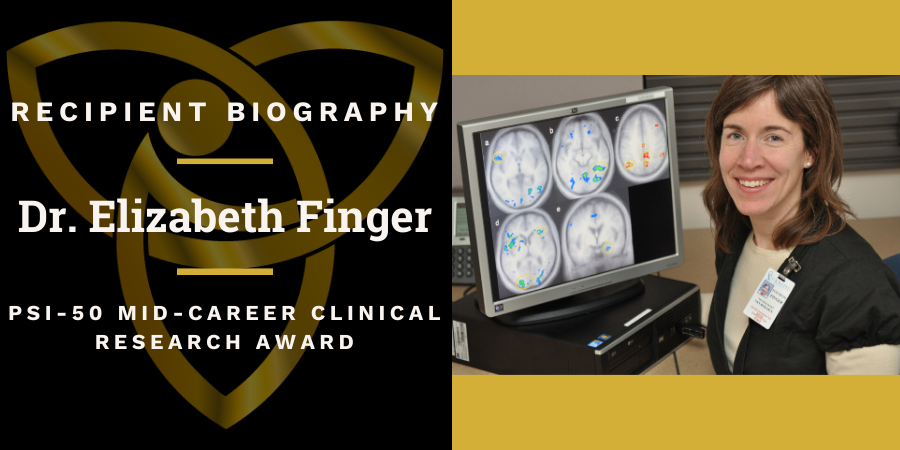“The PSI Mid-Career Clinician Researcher award will enable me to expand our research program aimed at identifying treatments for many of the currently untreatable cognitive and behavioural symptoms of dementias. Our current clinical trial, FOXY, is examining the potential for the hormone oxytocin to augment empathy deficits and apathy in patients with Frontotemporal Dementia. With the PSI award, we will further examine and optimize the clinical trial metrics and tools to enable efficient trial design for other neuropsychiatric symptoms in FTD and other dementias, and expand and intensify our training of the next generation of scientists and clinician-researchers working in the fields of cognitive neuroscience and neurodegenerative disease.” – Dr. Elizabeth Finger
Dr. Elizabeth Finger’s Current Appointments
- Associate Professor, Department of Clinical Neurological Sciences, Schulich School of Medicine & Dentistry, Western University
- Neurologist, London Health Sciences Centre and Parkwood Institute, St. Joseph’s Health Care
- Director of Research, Department of Clinical Neurological Sciences
- Scientist, Lawson Health Research Institute
- Scientist, Robarts Research Institute
Dr. Elizabeth Finger’s Research:
- Dr. Finger’s research program focuses on understanding the cognitive, neural, and genetic substrates of abnormal decision-making, emotion, and social behavior. Her research focus is on identifying treatments for the symptoms of apathy and impaired empathy in patients with Frontotemporal Dementia (FTD), to improve their quality of life as well as that of their caregivers and families.
About the PSI-50 Mid-Career Clinical Research Award
In celebration of PSI Foundation’s 50th anniversary, this one-time award provides up to $300,000 in funding over three or four years for a clinician-researcher between five and 15 years of their first academic appointment. This award recognizes that this phase of a researcher’s career is particularly challenging, with additional academic roles and responsibilities as well as the ongoing clinical work, and it will protect at least 50% of a recipient’s time for research that aligns with PSI Foundation priorities.



